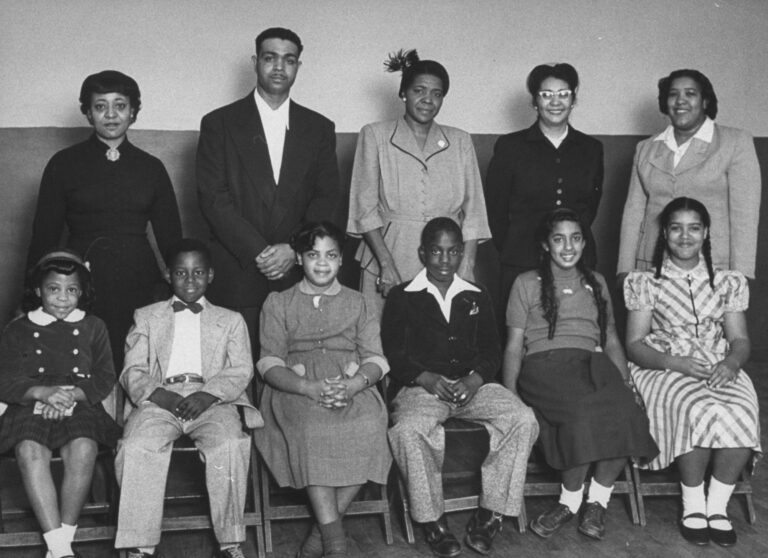Lawsuit Filed Over Controversial Cotton Picking Assignment at Los Angeles Elementary School
A Black parent in Los Angeles has taken legal action against a local elementary school following a contentious classroom project that required students to engage in cotton picking. Intended to demonstrate past labor practices, the assignment has ignited widespread condemnation from parents and community advocates who argue that it was profoundly insensitive and retraumatizing, given the painful history of slavery and forced labor in America. The plaintiff asserts that the project caused significant emotional distress and demands that the school district reevaluate its teaching materials to prioritize cultural awareness and sensitivity.
Key criticisms raised by opponents of the project include:
- Inadequate Historical Context: The project reportedly lacked sufficient explanation of the brutal realities and legacy of slavery tied to cotton picking.
- Emotional Impact on Students: Many students and their families reported feelings of discomfort, embarrassment, and alienation resulting from the hands-on nature of the task.
- Insufficient Parental Engagement: Concerns were voiced about the absence of prior notification or consent from parents before implementing such a sensitive activity.
While the school district has not yet released an official statement, community leaders and activists are calling for an immediate overhaul of curriculum review processes to prevent similar incidents. This controversy has reignited national conversations about how race and history should be taught in public schools to foster respectful and inclusive learning environments.
| Issue | Details |
|---|---|
| Historical Context | Lack of thorough background on slavery’s impact |
| Student Well-being | Reported emotional distress and alienation |
| Parental Communication | No prior parental notification or approval |
Understanding Historical and Cultural Sensitivities in Educational Content
The uproar over the cotton picking assignment underscores the critical importance of contextualizing historical lessons within their full cultural and emotional weight. Cotton picking is not merely a labor activity; it is a symbol deeply intertwined with the brutal history of slavery, systemic oppression, and racial trauma endured by African Americans. Educational initiatives that fail to recognise this can unintentionally reopen wounds and alienate students whose ancestors suffered under such conditions.
Experts and community advocates stress that history education should move beyond simplistic reenactments and rather embrace a multidimensional approach that:
- Provides thorough historical context to prevent misinterpretation and trivialization of traumatic events.
- Respects the lived experiences of marginalized groups by acknowledging the emotional weight of certain topics.
- Incorporates diverse narratives that highlight resilience, culture, and achievements alongside historical injustices.
| Focus Area | Significance |
|---|---|
| Accuracy in History | Maintains educational credibility and fosters critical thinking |
| Emotional Awareness | Protects students’ mental health and promotes empathy |
| Cultural Inclusivity | Creates a welcoming environment that honors all backgrounds |
School District Initiatives to Enhance Cultural Sensitivity in Curriculum
In light of the backlash, the Los Angeles Unified School District has pledged to conduct a thorough review of its curriculum policies, especially those involving culturally sensitive content. Officials acknowledged that the cotton picking project bypassed established curriculum approval protocols, prompting immediate reforms to prevent recurrence. Among the new measures are mandatory cultural sensitivity training for all educators and the formation of a diverse advisory committee tasked with vetting educational materials before classroom use.
The district’s action plan includes:
- Developing explicit guidelines for lessons that address race, history, and culture.
- Enhancing parental participation in curriculum discussions and approvals.
- Conducting regular audits to ensure teaching materials align with cultural respect and inclusivity standards.
| Policy Component | New Implementation | Timeline |
|---|---|---|
| Sensitivity Training | Annual workshops for all teaching staff | Beginning Fall 2024 |
| Curriculum Review Panel | Inclusive group with educators, parents, and community leaders | Effective immediately |
| Parental Engagement | Monthly curriculum feedback sessions | Starting Summer 2024 |
These initiatives represent a commitment to fostering educational spaces that are both enlightening and respectful, ensuring that lessons do not inadvertently cause harm or perpetuate historical insensitivity.
Best Practices for Developing Inclusive Curricula and Engaging Communities
To cultivate educational content that honors all students’ identities and histories, schools must embed cultural competence and historical accuracy into curriculum development from the outset. This involves actively collaborating with historians, cultural experts, parents, and community representatives to co-create lessons that are both informative and sensitive. Rather than relying on reenactments that may cause discomfort,educators should facilitate critical conversations that empower students to understand complex histories thoughtfully.
Effective community engagement strategies include:
- Hosting regular dialog sessions where families and community members can voice concerns and contribute ideas.
- Partnering with cultural organizations to design age-appropriate and accurate educational materials.
- Providing transparent communication channels that keep stakeholders informed about curriculum goals and content prior to classroom introduction.
| Engagement Strategy | Advantages | Illustrative Example |
|---|---|---|
| Parental Advisory Committees | Ensures diverse perspectives and ongoing feedback | Monthly meetings with educators and parents |
| Collaboration with Experts | Improves historical accuracy and cultural relevance | Joint curriculum development with cultural historians |
| Pre-lesson Communication | Builds trust and prepares families for sensitive topics | Informational letters sent to parents before lessons |
Conclusion: Key Insights on Cultural Sensitivity in Education
The dispute over the cotton picking project at the Los Angeles elementary school has catalyzed a vital dialogue about the necessity of cultural sensitivity and historical mindfulness in educational settings. As the legal proceedings continue, educators nationwide are being prompted to critically assess their curriculum choices to ensure that teaching methods enlighten without causing inadvertent harm. This case highlights the essential role of community collaboration and open communication in crafting educational experiences that honor the diverse histories and identities of all students.




